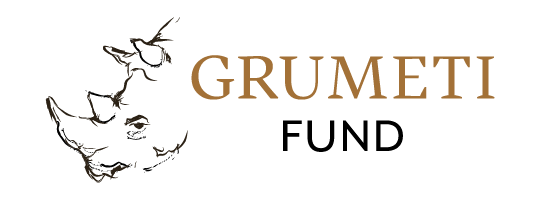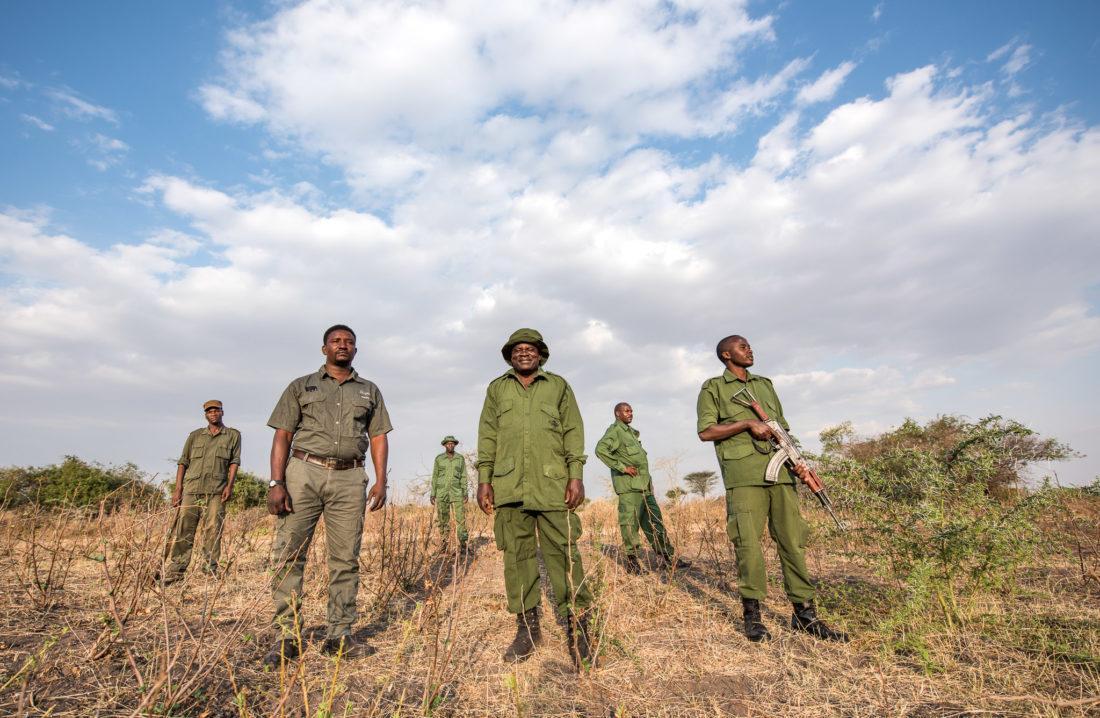Safeguarding the Livelihoods of People and Wildlife
Human wildlife conflict occurs where people and wildlife live in close proximity to one another. This interface is often negative. Conflict typically results in the destruction of crops or the killing of livestock with retribution killings and the destruction of wildlife a frequent consequence. To combat this escalating issue in our area, the Grumeti Fund is working on multiple solutions to mitigate human wildlife conflict to ensure that people and wildlife can co-exist in relative harmony and safety.
The Grumeti Fund Human Wildlife Conflict Mitigation Unit is one of these solutions. This is a team of four specially trained conflict mitigators, working in collaboration with Tanzania Wildlife Management Authority Anti-Poaching Unit Bunda (government scouts) based in the village of Hunyari. The team’s mission is to proactively assist local villagers suffering from human wildlife conflict.

Roshni Lodhia
To enhance their abilities in combatting and preventing human wildlife conflict, the team partook in a two-week training course with the non-profit Honeyguide. During their training in the Manyara area, the mitigation unit learned and practiced using different approaches to effectively move elephants out of village areas – mainly with the aid of vehicles and spotlights. However, they also found that noise can also play a useful role in deterring elephants.
Since being deployed in July 2017, the new human wildlife conflict mitigation unit has responded to several problem animal and conflict incidents – mostly connected to elephants raiding crops. As soon as the team receives a call to alert them to the presence of wildlife in or near a village, they respond as quickly as possible to the location of the conflict incident.
There are of course some difficulties. The main one being the rough roads and frequently long distances between themselves and some of the villages, which can mean that the problem animal has already done significant damage to the crop or livestock by the time they arrive. Communities can get very angry; it is not an easy job. For a team who wants to see both wildlife and people thriving, they often encounter situations where local peoples’ livelihoods have been destroyed or animals have been injured or killed. They are on call around the clock and most of their work occurs at night when elephants move into village land in search of ripening crops.

Black Bean Productions
Despite these challenges, the team remains positive. They believe that collaboration, communication and education are extremely important in reducing human wildlife conflict going forward. There are two ways which they expect to implement pro-active measures. One is through educating residents on how to deal with human wildlife conflict, how to discourage animals coming onto their farms, and how to alert each other and work as a team to push them safely back into the protected area. The other way is to engage in daily preventative patrols where they patrol areas where wildlife is expected to enter the village. The team is also eager to learn from other local efforts – either those of villages effectively combatting human wildlife conflict, or through other local NGO’s focusing on addressing this issue.
Human wildlife conflict remains the greatest challenge faced by rural Tanzanian communities living adjacent to protected areas like the Serengeti ecosystem, so it is of the utmost importance that the Grumeti Fund continues to explore novel strategies and effective ways of addressing this serious and widespread problem.
To donate to our program combatting human wildlife conflict click here





